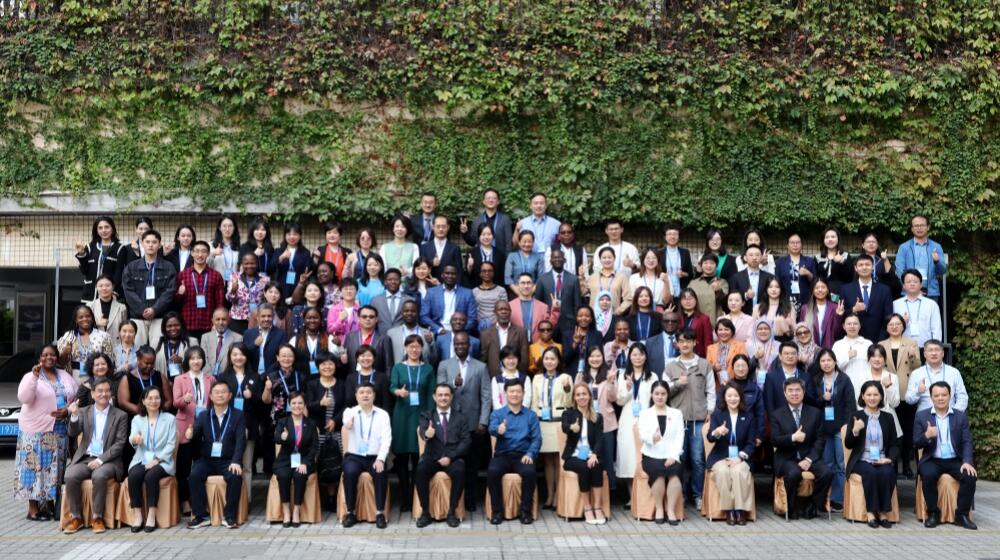BEIJING, China, 30 November 2023 – On 23-25 November, UNFPA China, UNICEF China, the Chinese government – National Center for Women and Children's Health of the National Health Commission – co-hosted a workshop in Nanning, Guangxi to promote South-South experience sharing on maternal and child health.
Delegates from China, 5 countries of the Association of Southeast Asian Nations (ASEAN) and 11 African countries, including the Brunei Darussalam, Central African Republic, Ethiopia, Gambia, Guinea-Bissau, Lao PDR, Malaysia, Mauritania, Namibia, Philippines, South Africa, Sierra Leone, Tanzania, Thailand, Uganda, Zimbabwe attended the workshop.
In the format of keynote speeches, plenary, panel and roundtable discussions, delegates delved into topics on maternal health, newborn health, and prevention and diagnosis of breast and cervical cancers. In particular, they conducted a field visit to the Guangxi Provincial Maternal and Child Health Care Hospital and community health center and learned about China's maternal and child health care system, including systematic maternal, newborn and child health management, screening for and assessment of high-risk pregnancy, immunization for children, and Early Childhood Development services at the local level.
“The power of South-South Cooperation lies in mutual benefit and the exchange of knowledge, expertise, and innovative solutions. This workshop provides a unique opportunity to engage in meaningful dialogue, fostering partnerships that transcend geographical boundaries,” says Ms. Ira Ovesen, Deputy Representative of UNFPA China.
“As UNICEF, we are committed to continue fostering dialogue and collaboration in the realm of maternal and child health. This particular exchange has been very useful in experience sharing between China and partner countries. We have received valuable feedback regarding potential areas for future cooperation from countries. This insightful engagement on various technical aspects will undoubtedly pave the way for a fruitful partnership moving forward.” Says Dr. Ali Shirazi, Chief of Child Health and Development, UNICEF Office for China.
“The Chinese government is committed to strengthening cooperation with ASEAN and African countries to promote maternal and child health through South-South cooperation. China will continue this cooperation with developing countries to create a more prosperous and better world.” says Dr. Xu Zongyu, Deputy Director-General of the Department of Maternal and Child Health of the National Health Commission, China.
Ms Jennifer Dela Rosa, senior officer from the ASEAN Secretariat, shared good practices in improving maternal and child health in ASEAN countries. “The first one is on our portfolio on addressing maternal and child malnutrition. And the second one is on addressing skilled birth attendance and promoting facility-based deliveries.”
Dr. Samuel Gondje, Mission manager from the Ministry of Health and Population of the Central African Republic commented, “We have learned many good practices and achievements towards reducing maternal and child deaths in China. I believe that this cooperation will continue on concrete projects for the benefit of women and children in the Central African Republic.”
Reducing preventable maternal and newborn death and promoting universal access to primary health care and rights is key work of UNFPA and UNICEF in China and globally. We will continue playing a broker role in South-South Cooperation between China and other developing countries, to ensure no woman, child or girl is left behind.



